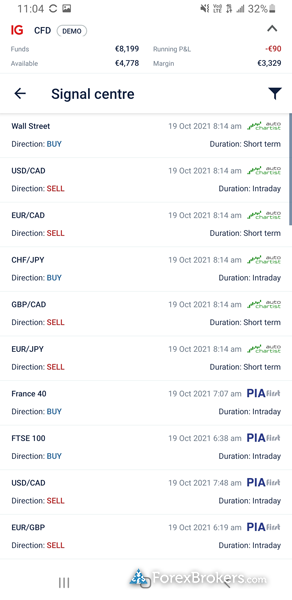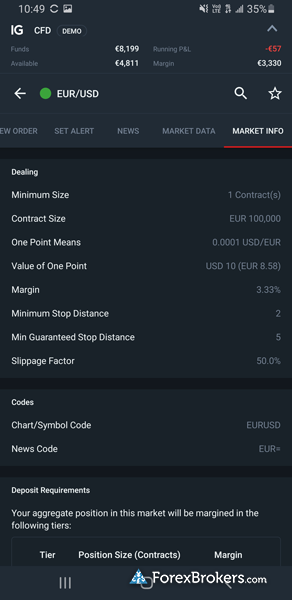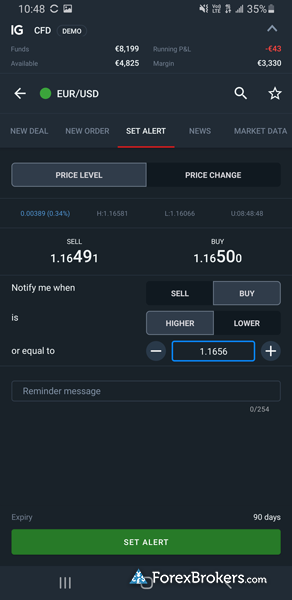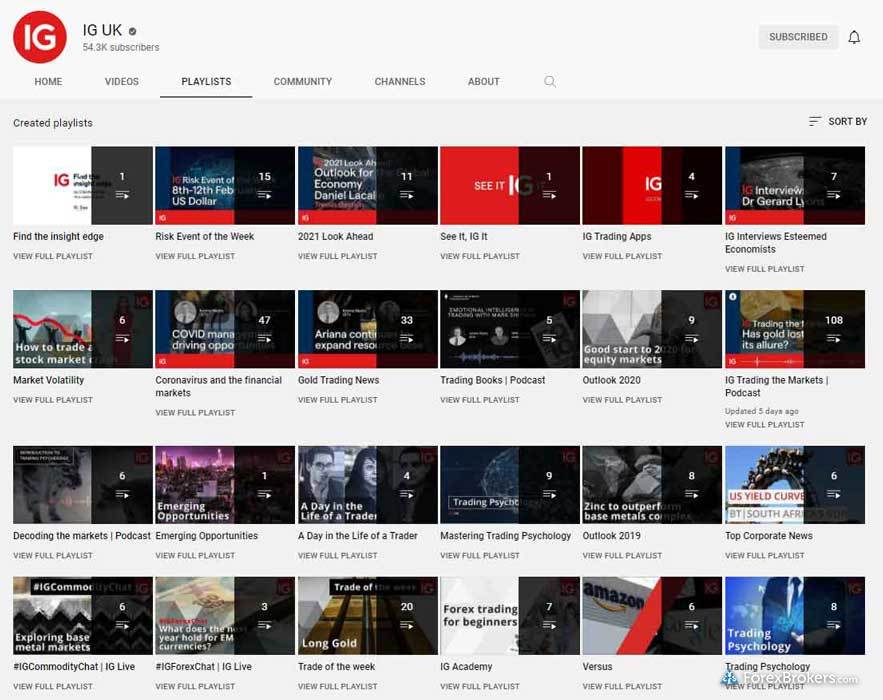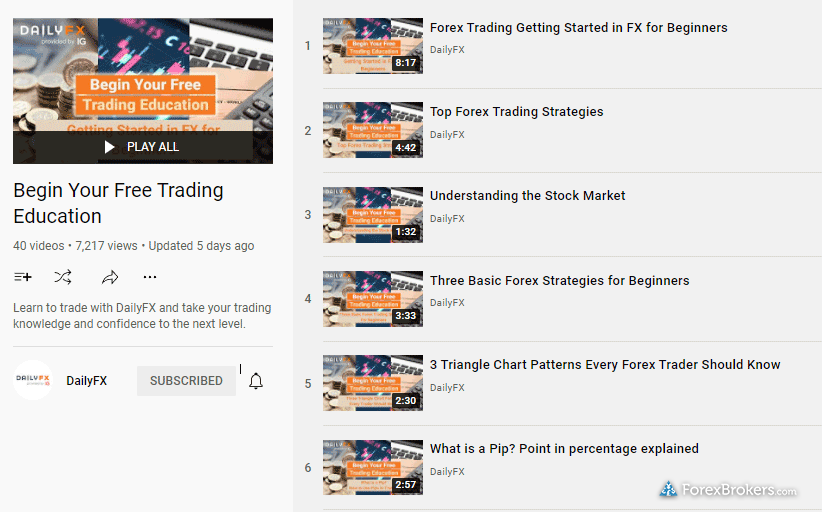Best Forex Brokers in Malaysia for 2025
ForexBrokers.com has been reviewing online forex brokers for over eight years, and our reviews are the most cited in the industry. Each year, we collect thousands of data points and publish tens of thousands of words of research. Here's how we test.
Trading forex in Malaysia has become increasingly popular in recent years, and has also come under closer regulatory scrutiny.
While many internationally regulated forex brokers accept clients from Malaysia, it is an additional benefit to also hold a Capital Markets Services License (CMSL) from the Securities Commission of Malaysia, or SCM, the country's financial regulatory body.
Numerous brokers, including some well-established international firms, have received warnings from SCM for operating without a local license, though practical implications for the brokers remain unclear. We recommend that Malaysian residents follow the SCM on Twitter: @SecComMY

Best Forex Brokers Malaysia
To find the best forex brokers in Malaysia, we created a list of all brokers that accept new customers from Malaysia and ranked them by their Overall ranking, calculated during our in-depth testing of the top forex trading platforms. This exacting analysis of more than 100 variables includes our proprietary Trust Score (more on Trust Score below).
Here is our list of the top forex brokers in Malaysia:
Malaysian Forex Brokers Comparison
Compare Malaysian authorised forex and CFDs brokers side by side using the forex broker comparison tool or the summary table below. This broker list is sorted by my Overall rankings of the top forex brokers.
| Company | Accepts MY Residents | Average Spread EUR/USD - Standard | Minimum Deposit | Overall Rating |
 IG IG
|
0.98 | £250.00 |
|
|
 Interactive Brokers Interactive Brokers
|
0.59 | $0 |
|
|
 Saxo Saxo
|
1.1 | $0 |
|
|
 FOREX.com FOREX.com
|
1.4 | $100 |
|
|
 XTB XTB
|
1.00 | $0 |
|
|
 OANDA OANDA
|
1.61 | $0 |
|
|
 AvaTrade AvaTrade
|
0.93 | $100 |
|
|
 FXCM FXCM
|
0.78 | Starts from $50 |
|
|
 Pepperstone Pepperstone
|
1.00 | $0 |
|
|
 XM Group XM Group
|
1.6 | $5 |
|
|
 Admirals Admirals
|
0.8 | $100 |
|
|
 FP Markets FP Markets
|
1.2 | $100 AUD |
|
|
 IC Markets IC Markets
|
0.62 | $200 |
|
|
 FxPro FxPro
|
1.51 | $100 |
|
|
 Tickmill Tickmill
|
0.51 | $100 |
|
|
 BlackBull Markets BlackBull Markets
|
0.71 | $0 |
|
|
 Vantage Vantage
|
1.30 | $50 |
|
|
 HYCM (Henyep Capital Markets) HYCM (Henyep Capital Markets)
|
1.2 | $20 |
|
|
 HFM HFM
|
1.2 | $0 |
|
|
 Questrade Questrade
|
N/A | $250 |
|
|
 ActivTrades ActivTrades
|
0.98 | $0 |
|
|
 Trade Nation Trade Nation
|
0.6 | $0 |
|
|
 Moneta Markets Moneta Markets
|
1.38 | $50 |
|
|
 Eightcap Eightcap
|
1.0 | $100 |
|
|
 Spreadex Spreadex
|
0.81 | $0 |
|
|
 easyMarkets easyMarkets
|
0.8 | $25 |
|
|
 Octa Octa
|
0.9 | $25 |
|
CFDs are complex instruments and come with a high risk of losing money rapidly due to leverage. Between 51% and 89% of retail investor accounts lose money when trading CFDs. You should consider whether you understand how CFDs work and whether you can afford to take the high risk of losing your money.
What is the best forex broker in Malaysia?
IG is the best broker for forex trading in Malaysia. Out of all brokers that accept Malaysian residents, IG stands out from the competition in almost every category and is consistently top-ranked in the areas that matter most. Though not regulated in Malaysia, IG has obtained the highest Trust Score possible for a forex broker. IG offers a wide range of currency pairs (including forex options) and complex order types for advanced trading strategies, while still catering to beginners with its rich forex educational courses and free demo accounts, making it a compelling choice for Malaysian investors. Check out my full IG review.
Check out a gallery of screenshots from IG's trading platforms, taken by our research team during our product testing.
Is your broker safe?
Choosing a regulated broker is important for avoiding forex scams, and the country where your broker is regulated is equally important. Our Trust Score, a proprietary algorithm, ranks regulatory agencies into three groups, with Tier 1 indicating the most trusted financial centers and Tier 3 the least. Our data collection on each broker results in a ranking from 1 to 99 of the broker's overall trust. The higher a broker's Trust Score, the better. Learn more about Trust Score here.
Why regulation is important
Regulation is intended to help forex investors avoid scam brokers, which are plentiful and can be persuasive. If you want to learn more about common forex scams and how to identify crypto scammers, check out our educational series on avoiding financial scams.
Bank Negara Malaysia’s official forex warning list
The central bank of Malaysia, also known as Bank Negara Malaysia (BNM), periodically updates its Financial Consumer Alert (FCA) List which – at the time of this writing – contains nearly 400 companies. The declared aim of BNM’s FCA list is to identify “entities or schemes which may have been wrongly perceived or represented as being licensed or regulated by Bank Negara Malaysia (BNM).”
Important note: At first glance, the BNM’s FCA list may appear to simply be a forex scams list. Though many of the companies listed may be suspect forex brokers and/or potential scammers, some of the companies or entities may be legitimate brands that are regulated in other countries or jurisdictions – just not in Malaysia. That said, we always recommend working with a broker that is regulated in your country of residence (if possible). Learn more about how we track and classify regulatory agencies on our Trust Score page, and check out our guide to avoiding forex scams.
How to verify SCM authorisation
To identify if a forex broker is regulated by SCM, the first step is to identify the register number from the disclosure text at the bottom of the broker's Malaysia homepage.
Next, look up the firm on the SCM website to validate the current regulatory status of the broker in Malaysia. Here is the official page with the public register of license holders on SCM.
It's also worth noting that Bank Negara Malaysia, the Central Bank of Malaysia that regulates money service businesses and forex dealers, has issued guidelines for cryptocurrencies with which companies must comply when dealing with crypto assets.
Is trading forex in Malaysia legal?
Yes, forex trading is legal in Malaysia – as long as it is conducted with a licensed money service business provider under Malaysia’s Money Service Business Act of 2011, or with a regulated broker under the Exchange Control Act of 1953. The Central Bank of Malaysia considers forex brokers that are not regulated directly in Malaysia to be potential scams, and has created a list of unregulated brokers to protect consumers – though it’s important to note that inclusion within this list does not necessarily indicate a scam.
There are also over 163 Appointed Overseas Offices (AOOs) for banks and brokerages that are licensed to deal with non-residents in Malaysia for financial services such as forex trading, per the Central Bank of Malaysia’s FX Policy.
Note: There are many reputable, highly rated forex brokers that are regulated in other countries that do accept Malaysian residents.
Malaysia’s financial markets
Forex traders may recognize the Malaysian ringgit (MYR) as Malaysia’s national currency, which in 2005 was unpegged from the U.S. dollar (USD) and replaced with a managed float system, similar to existing central bank monetary policies all around the world. Malaysia’s central bank, Bank Negara Malaysia (BNM), retains sole authority for issuing and regulating the ringgit.
Malaysia’s primary stock market is the Bursa Malaysia Exchange (previously the Kuala Lumpur Stock Exchange), based in Kuala Lumpur. The Bursa Malaysia Exchange provides trade execution for Malaysian stocks, fixed income products, funds, and exchange-traded funds (ETFs), as well as derivatives via the Bursa Malaysia Derivatives (BMD) marketplace.
Aiming to promote Malaysia as an international hub of Islamic finance, Bursa Malaysia has established an Islamic Market to provide a Sharia-compliant trading platform and associated financial products.
Is Metatrader 4 legal in Malaysia?
Yes, the Metatrader platform, including MetaTrader 4 (MT4) and MetaTrader 5 (MT5), developed by MetaQuotes Software Corporation, is licensed to hundreds of brokers around the world and is legal to use in Malaysia.
However, the regulatory status of the forex broker that is offering MetaTrader in Malaysia (or any platform, for that matter) must be checked on a case-by-case basis to determine whether the broker is authorized by the local regulator, the SCM.
Learn more about MetaTrader
Find out why MetaTrader is one of the most popular trading platforms in the world by checking out our guide to MetaTrader, or read our guide to MetaTrader 5.
Is forex trading taxable in Malaysia?
Yes, forex trading is taxable in Malaysia, as capital gains are taxable events. Residents of Malaysia are responsible for reporting their worldwide income, whether from local investments or from trading forex with a foreign broker. It is best to consult with your local accountant to best determine how to treat your reportable taxable gains from forex trading in Malaysia.
Does the Bank Negara Malaysia (BNM) regulate forex?
The central bank of Malaysia, or Bank Negara Malaysia (BNM), has authority over the local foreign exchange markets and regulates the national currency (the Malaysian Ringgit). That said, there is no clear framework for brokers that offer retail forex from a margin account, leaving locals with little choice in choosing a local forex broker for the purpose of retail forex trading. For example, CIMB is one of a dozen brokers regulated by the SCM in Malaysia, but it doesn’t offer leveraged forex trading. CIMB’s forex offering is limited to physical exchange (i.e. currency conversion) – which is not ideal for speculators.
Where can I trade forex in Malaysia?
When looking at the public register of license holders issued by the Securities Commission of Malaysia, we found that most of the capital market services providers may offer physical currency exchange, but retail spot forex trading options are limited. For this reason, many international brokers that are regulated in other countries accept Malaysian residents despite not holding a license directly with the SCM.
What is the best forex trading app in Malaysia?
After conducting extensive testing on the best mobile apps from international forex brokers and local forex brokers in Malaysia, IG’s suite of mobile apps emerged as our top choice. IG delivers an outstanding mobile trading experience, and its IG Trading app is available for Android and iOS devices.
In my full-length review of IG, I describe IG’s mobile app as being “packed with plenty of features that will satisfy both casual and advanced traders.”
Want to trade forex on the go?
Mobile forex trading is more popular than ever, and many of the best international forex brokers offer multiple mobile apps and well-designed mobile trading platforms. Check out my guide to the best forex trading apps.
Check out a gallery of screenshots from IG's mobile trading app, taken by our research team during our product testing.
Important note: Though not regulated by the SCM in Malaysia, IG holds close to a dozen regulatory licenses in multiple jurisdictions across the world, making it one of the most trusted international forex brokers.
What is forex?
Forex, short for foreign exchange, refers to the trading or exchanging that takes place in international currency markets, in which one currency is bought or sold in return for another foreign currency. The goal for forex traders — and it's a tricky one — is to profit by accurately predicting fluctuations in value.
Commonly traded forex pairs include the euro and U.S. dollar (EUR/USD), British pound and U.S. dollar (GBP/USD), euro and Japanese yen (EUR/JPY), and several others.
There are various types of participants in the forex markets: retail and institutional traders, large corporations, banks, and central banks that help regulate monetary policy, such as when printing money that enters circulation.
There are at least two sides to every forex trade. On one side is a buyer, and on the other side a seller. Forex market participants either have a need for the particular currency, such as for business use or hedging risk; or are speculators taking an investment position expecting the price to move in a favorable direction.
Learn more about forex trading
Check out my in-depth, Forex 101 educational series to learn more about spreads, currency trading, how to calculate pips in the forex market, how leverage works for forex traders, and more.
Which broker is best for beginners?
IG is the best broker for beginners in 2025, thanks to its vast selection of comprehensive educational resources. IG has a massive variety of content for beginners across various media formats such as videos, articles, and podcasts, including in-house content from IG’s DailyFX news portal. IG’s high-quality educational content is bolstered by interactive courses that allow you to track your progress while learning how to trade forex and CFDs. IG has even developed a standalone mobile app (in addition to their award-winning IG Trading app) dedicated to helping beginners learn about the financial markets.
Check out a gallery of screenshots from IG's educational content, taken by our research team during our product testing.
New to forex trading?
Check out our guide to forex trading for beginners. Our forex beginner's guide goes over some forex fundamentals for newer traders, and introduces our picks for the best forex brokers for beginners.
What is the spread in forex?
The spread is a term used to describe the cost when you trade forex. It's the difference between the sell (bid) price and the buy (ask) price of the currency pair you're trading.
Spread when buying: While the spreads may vary across brokers, account types, and forex pairs, the spread will be the same whether you buy or sell. Spreads can also widen due to volatile events such as as economic news announcements.
Spread when selling: Selling is no different in terms of spread. For example, a trader who expects a price drop and creates a sell to open market order will pay the bid price to open a position, and at that moment will also realize the spread. The ask price will be worse (the rate to close the trade at that moment would create a loss for the spread amount if the rate stayed the same) even though the subsequent price update may again cause a deeper loss, break-even or profit, depending on the degree of price change to the rates.
Commissions: Even in a commission-free account, traders still pay the spread, because the moment you place the trade — such as when buying at the ask price — the bid price is worse. Thus your trade reflects the cost of the spread being realized before the next price updates. Any subsequent rate change can result in a deeper loss, break-even, or profits, depending on the degree of price movements and direction after your trade is executed.
Pro tip: While some brokers offer fixed pricing, or may advertise spreads from as low as a certain value, the most meaningful measure is an average spread that is calculated over a time period that shows how consistent the broker's pricing is. Otherwise, a firm may advertise a low rate, but in reality spreads could be much worse on average. So it is important to obtain average spreads as well as the time period when they were measured.
Can you trade crypto like forex?
Yes, trading cryptocurrencies like bitcoin is similar to trading forex. The same sort of technical and fundamental analysis is applicable to trading crypto derivatives (that is, CFDs) or other crypto securities which allow you to go long (buy) or short (sell). You can also use the underlying asset (long-only) to hold a longer-term position.
Like forex traders, crypto traders can go long or short — that is, trade in either direction to open a new position — and use a combination of technical analysis (historical and current market prices) and economic news, such as unemployment data, GDP and other government or central bank data when placing a position.
A key difference between forex and crypto trading is that some cryptocurrencies don't have enough price history for technical analysis to be meaningful, and fundamental analysis is limited to any on-chain public data about the project, in addition to the project sponsor's website.
Pro tip: Since there are no governing bodies to disseminate official market data — given that crypto is largely decentralized — commentary across social media channels can influence market prices. For example, Elon Musk could make a one-off comment and impact a cryptocurrency price, even though he may not be associated with a particular cryptocurrency project.
Article Resources
Securities Commission of Malaysia, Bank Negara Malaysia (BNM) Financial Consumer Alert (FCA) List
Compare Malaysia Brokers
Popular Forex Guides
- International Forex Brokers Search
- Best Brokers for TradingView of 2025
- Best MetaTrader 4 (MT4) Brokers for 2025
- Best Forex Trading Apps for 2025
- Best Forex Brokers for Beginners of 2025
- Best Low Spread Forex Brokers for 2025
- Best Forex Brokers for 2025
- Compare Forex Brokers
- Best Copy Trading Platforms for 2025
More Forex Guides
Find the best forex brokers in the Asia-Pacific region
Asia
- Best Forex Brokers in India for 2025
- Best Forex Brokers in Indonesia for 2025
- Best Forex Brokers in Malaysia for 2025
- Best Forex Brokers and Trading Apps in Pakistan for 2025
- Best Forex Brokers in Philippines for 2025
- Best Forex Brokers in Russia for 2025
- Best Forex Brokers in Singapore for 2025
- Best Forex Brokers in Thailand for 2025
- Best Forex Brokers in Turkey for 2025
Oceania
2025 Review Methodology
At ForexBrokers.com, our reviews of online forex brokers and their products and services are based on our collected data as well as the observations and qualified opinions of our expert researchers. Each year we publish tens of thousands of words of research on the top forex brokers and monitor dozens of international regulator agencies (read more about how we calculate Trust Score here).
Our research team conducts thorough testing on a wide range of features, products, services, and tools (collecting and validating thousands of data points in the process). We test all available trading platforms for each broker – whether they are proprietary or come from third-party providers – and evaluate them based on a host of data-driven variables.
We also take an in-depth look at each broker’s commissions and fees, such as bid/ask spreads – including the average spread data for some of the most popular forex currency pairs. We research other trading costs, such as inactivity or custody fees, minimum deposit requirements, VIP rebates and/or discounts, and a range of other important fee-based data points.
Some of the other important research categories that are factored into our testing include mobile trading accessibility and capability, availability of market research and educational content, and each broker’s overall Trust Score.
All content on ForexBrokers.com is handwritten by a writer, fact-checked by a member of our research team, and edited and published by an editor. Our ratings, rankings, and opinions are entirely our own, and the result of our extensive research and decades of collective experience covering the forex industry.
Read our full explanation and accounting of our research and testing process to learn more about how we test.
Forex Risk Disclaimer
There is a very high degree of risk involved in trading securities. With respect to margin-based foreign exchange trading, off-exchange derivatives, and cryptocurrencies, there is considerable exposure to risk, including but not limited to, leverage, creditworthiness, limited regulatory protection and market volatility that may substantially affect the price, or liquidity of a currency or related instrument. It should not be assumed that the methods, techniques, or indicators presented in these products will be profitable, or that they will not result in losses. Read more on forex trading risks.


















